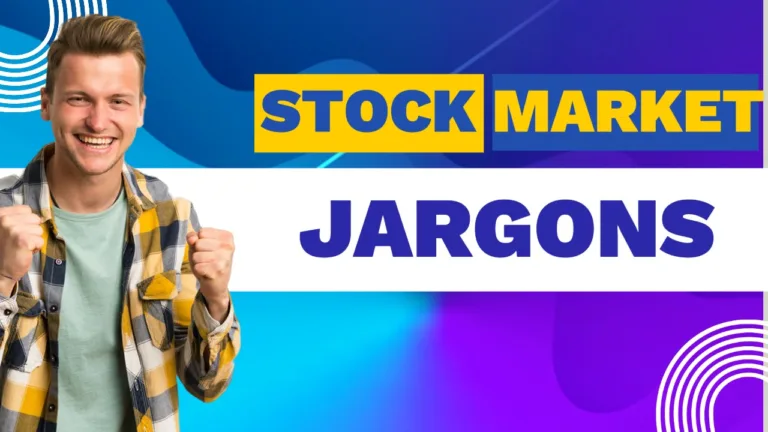The Ultimate Guide to DeFi: How Decentralized Finance is Revolutionizing the Financial World
What is DeFi?
Understanding Decentralized Finance
DeFi, short for Decentralized Finance, represents a paradigm shift in the way financial services are delivered. Unlike traditional finance systems that rely on centralized intermediaries like banks or financial institutions, DeFi leverages blockchain technology to operate in a decentralized manner. This new approach to finance provides a transparent, open, and borderless ecosystem where individuals can transact without the need for a trusted third party.
At its core, DeFi relies on smart contracts—self-executing agreements written into code on the blockchain. These contracts automate transactions and other financial processes, removing the need for intermediaries and reducing the overall costs associated with financial services.
The Evolution of Financial Systems
The financial landscape has evolved significantly over the years, from barter systems to the emergence of banks and credit systems. Traditional financial institutions have long dominated the sector, controlling access, imposing high fees, and setting strict regulations that often exclude many individuals from participating in the financial system.
DeFi emerged as a response to these limitations, offering a more inclusive, efficient, and transparent alternative. By using blockchain technology, DeFi allows for the creation of financial products and services that anyone with an internet connection can access, regardless of geographical location or financial status.
Comparing Traditional Finance (CeFi) and DeFi
In traditional finance, also known as CeFi (Centralized Finance), banks and other financial intermediaries are required to facilitate transactions, loans, and investments. These institutions often require trust from their users, who must rely on the integrity and security measures of the intermediaries.
On the other hand, DeFi eliminates the need for middlemen by using blockchain technology and smart contracts. This not only enhances security but also provides transparency since all transactions are recorded on a public ledger. However, while CeFi offers stability and regulatory oversight, DeFi brings the potential for greater freedom and innovation, albeit with some risks.
Core Components of DeFi
Blockchain Technology
The backbone of DeFi is blockchain technology. A blockchain is a decentralized and distributed ledger that records transactions across a network of computers. This technology ensures that all transactions are secure, transparent, and immutable, making it the perfect foundation for DeFi applications.
Blockchains like Ethereum are particularly important in DeFi because they allow developers to build decentralized applications (dApps) and smart contracts that execute automatically when certain conditions are met.
Smart Contracts
Smart contracts are self-executing agreements with the terms of the agreement directly written into code. They automate and enforce the performance of contracts, making it possible to execute transactions and agreements without the need for intermediaries. These contracts are crucial in DeFi as they power everything from lending protocols to decentralized exchanges.
For example, in a lending dApp, a smart contract might automatically transfer collateral to a lender if a borrower fails to repay a loan. The transparency and automation provided by smart contracts are at the heart of DeFi’s efficiency and trustless nature.
Cryptocurrencies and Stablecoins
Cryptocurrencies are essential in DeFi as they provide the medium of exchange and value transfer. Ethereum (ETH) and Bitcoin (BTC) are commonly used in various DeFi platforms. However, due to the volatility of these assets, stablecoins such as USDC and DAI are also popular. Stablecoins are pegged to fiat currencies like the US dollar, providing stability and reducing risk in transactions.
Key Benefits of DeFi
Transparency
DeFi platforms operate on public blockchains, meaning all transactions are transparent and available for anyone to verify. This transparency builds trust among users and ensures that the system remains fair and accessible.
Accessibility and Inclusivity
Traditional finance often excludes individuals who lack access to banks or credit. DeFi, however, is open to anyone with an internet connection and a crypto wallet. This inclusivity democratizes financial services and gives people in underbanked regions the opportunity to participate in the global economy.
Reduced Costs and Efficiency
By removing intermediaries like banks, DeFi significantly reduces transaction fees. Smart contracts automate many processes, improving efficiency and reducing human error. For example, cross-border transactions in DeFi are typically faster and cheaper compared to traditional banking systems.
Risks and Challenges in DeFi
Security Concerns and Hacks
While DeFi offers numerous benefits, it also comes with risks. Smart contract vulnerabilities and hacking incidents are common in the DeFi space. Users must be cautious and choose reputable platforms with robust security measures.
Regulatory Uncertainty
DeFi operates in a largely unregulated space, which can be both an advantage and a challenge. On one hand, the lack of regulation allows for rapid innovation. On the other, it creates uncertainty and potential legal issues for users and developers.
Volatility of Cryptocurrencies
The value of cryptocurrencies used in DeFi can be highly volatile. While stablecoins aim to mitigate this risk, they are not immune to market fluctuations. Users need to be aware of these risks and take appropriate precautions.
Popular DeFi Applications
Decentralized Exchanges (DEXs)
Decentralized exchanges like Uniswap and SushiSwap allow users to trade cryptocurrencies without relying on a central authority. These platforms use liquidity pools and smart contracts to facilitate trades directly between users, offering greater security and lower fees.
Yield Farming and Staking
Yield farming involves providing liquidity to DeFi platforms in exchange for rewards, often in the form of additional tokens. Staking, on the other hand, involves locking up cryptocurrency to support the operations of a blockchain network and earning rewards. Both methods provide users with ways to earn passive income, but they come with associated risks.
Lending and Borrowing Platforms
Platforms like Aave and Compound enable users to lend their crypto assets and earn interest or borrow against their holdings. These platforms use smart contracts to automate the lending process, ensuring that loans are secure and transparent.
How to Get Started with DeFi
Setting Up a Crypto Wallet
To engage in DeFi, the first step is setting up a crypto wallet. Unlike traditional bank accounts, crypto wallets allow you to store and manage digital assets. Wallets like MetaMask, Trust Wallet, or Ledger (for hardware wallets) provide access to DeFi platforms. These wallets are essential for storing your cryptocurrencies and interacting with decentralized applications (dApps) safely. Make sure you keep your private keys secure, as losing them means losing access to your funds permanently.
Choosing a DeFi Platform
With hundreds of DeFi platforms available, it’s important to choose one that fits your needs and risk tolerance. Some of the most popular platforms include:
- Uniswap for swapping tokens and trading cryptocurrencies.
- Aave for borrowing and lending assets.
- Yearn Finance for yield farming and earning passive income.
Research each platform’s reputation, security features, and user reviews to make an informed decision. Start with small amounts of capital to familiarize yourself with the processes before committing larger sums.
Understanding Fees and Gas Costs
When using DeFi platforms, you’ll encounter fees known as “gas costs.” These are charges for processing transactions on the blockchain. Ethereum, the most widely used blockchain for DeFi, can have high gas fees during periods of high network activity. Alternatives like Binance Smart Chain (BSC), Polygon, or Solana offer lower fees, making them attractive options for those just getting started. Understanding and managing these fees can significantly impact your DeFi profits and experience.
The Future of DeFi
Interoperability Between Blockchains
As the DeFi space continues to grow, the need for blockchain interoperability is becoming more pressing. Interoperability allows different blockchains to communicate and exchange assets seamlessly. Projects like Polkadot, Cosmos, and Chainlink are working on solutions to create a more interconnected DeFi ecosystem, enabling users to leverage the benefits of multiple platforms without the hassle of converting assets or managing multiple wallets.
Adoption by Institutions and Governments
DeFi’s growth has caught the attention of financial institutions and governments. While many traditional players are still cautious, some are exploring ways to integrate DeFi technology. For example, central bank digital currencies (CBDCs) are being developed worldwide, combining the security of blockchain with the stability of fiat currencies. As DeFi matures, institutional involvement could bring more legitimacy, stability, and investment opportunities to the space.
Potential for Mass Adoption
The DeFi ecosystem is constantly evolving, with developers creating user-friendly interfaces and applications that make it easier for everyday users to engage in decentralized finance. If DeFi can overcome challenges like regulatory uncertainty, scalability, and security concerns, it has the potential to achieve mass adoption. This could fundamentally reshape the global financial system, making financial services more accessible and efficient for everyone.
FAQs About DeFi
Is DeFi safe to use?
While DeFi offers many benefits, it comes with risks such as hacking, smart contract vulnerabilities, and volatility in cryptocurrency prices. It’s essential to research and use only well-established platforms with strong security measures. Always consider the risks and never invest more than you can afford to lose.
How can I earn money through DeFi?
You can earn money in DeFi through various methods such as yield farming, staking, lending, and participating in liquidity pools. Each method comes with different levels of risk and reward, so it’s important to understand how they work before investing.
What are gas fees, and why do they matter?
Gas fees are transaction fees paid to blockchain validators for processing and securing transactions. These fees are crucial in maintaining the network’s integrity, but they can fluctuate based on network congestion. High gas fees can eat into your profits, so it’s important to plan transactions when fees are lower or use alternative blockchains with cheaper costs.
Are all DeFi platforms decentralized?
Not all DeFi platforms are fully decentralized. Some have centralized elements, such as governance controlled by a small group of developers or a centralized organization overseeing development. It’s crucial to understand the degree of decentralization when choosing a platform, as it can affect transparency and security.
What’s the difference between DeFi and CeFi?
CeFi, or Centralized Finance, involves traditional financial systems where a centralized entity, like a bank or exchange, controls operations. DeFi, on the other hand, uses blockchain technology and smart contracts to create a decentralized financial ecosystem that removes intermediaries, giving users more control and transparency.
How do I avoid scams in DeFi?
Scams are prevalent in the DeFi space, so it’s crucial to do thorough research. Avoid unknown platforms with little to no community presence or transparency. Look for audits by reputable firms, read user reviews, and follow trusted sources in the crypto space to stay informed.
Conclusion
DeFi is a revolutionary development in the financial industry, offering unparalleled transparency, accessibility, and innovation. While it opens up new opportunities for users worldwide, it also comes with risks, including security vulnerabilities and regulatory challenges. By understanding the basics, starting small, and choosing reputable platforms, you can explore the exciting world of decentralized finance and potentially take advantage of its benefits. As the industry evolves, DeFi has the potential to reshape how we interact with financial services, creating a more inclusive and efficient global economy.
- The Rise of DeFi: How Blockchain is Changing Finance
- The Psychology of Money: Timeless lessons
- Loud Budgeting in 2024
- Stock Market Terms for Beginners
- Digistore24



